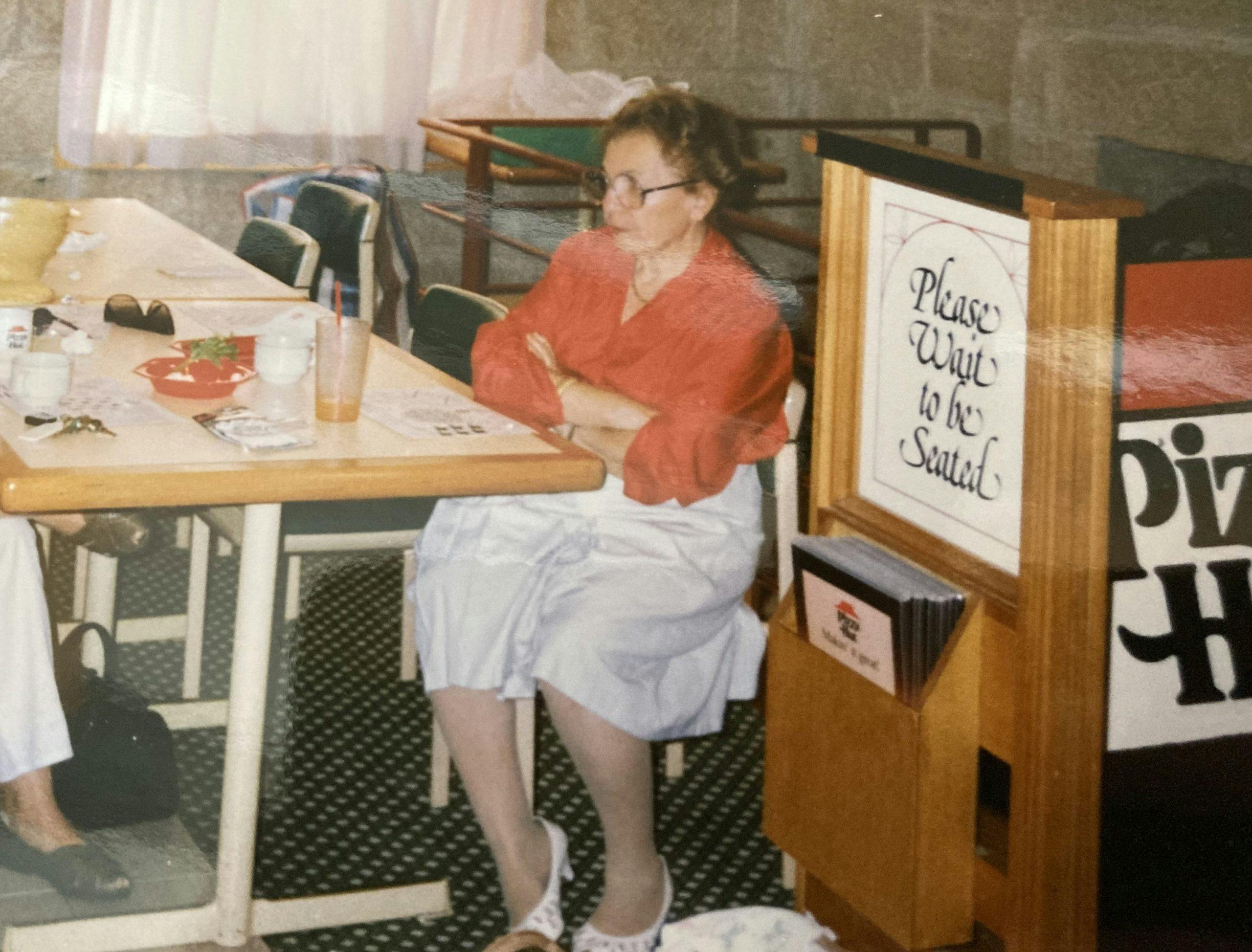Published: 17 June 2024
Last updated: 27 June 2024
This is the second instalment of a six-part series, Be Fruitful: Fertility Journeys in Modern Jewish Lives, which explores the complex and sometimes taboo journey to parenthood in the Jewish community – from foster care and early pregnancy loss to surrogacy and stigma.
Building a Jewish family is a strong cultural expectation for all Jews, but for the Orthodox, it is also a religious requirement.
For those who are among the one in six Australian couples who experience infertility, it is not always possible to fulfil this duty.
Enter Rabbi Yehoram Ulman: a senior member of the Sydney Beth Din and one of the foremost rabbinical experts on fertility internationally, who developed a world-first protocol authorising the use of IVF.
Affectionately dubbed ‘Kosher IVF’, the protocol enables Orthodox couples to access reproductive technologies without compromising Jewish law.
“It's not that anything with IVF sits at odds with Jewish religion, but you have to address substantive and specific questions,” Ulman told The Jewish Independent.
“For example, how can you observe Shabbat while timing the required IVF tests and procedures? How can you follow family purity laws if you are ovulating before mikveh?”
Ulman says it makes sense to go to great lengths to enable Orthodox couples to access fertility treatment.
“We make sure there are proper protocols for ensuring the kashrut of products. If we are abiding by Jewish law when it comes to meat and wine, how much more so [should we be] when it comes to the children we bring into this world?”
‘Thousands of Jewish babies’
Halachic guidelines for fertility treatments were developed over three decades ago in 1991 – 13 years after the world’s first baby conceived through IVF was born in the UK. It was first implemented in Sydney and has since spread to other Jewish communities around the world including in South Africa, Venezuela, Panama, America and Israel.
“If we are abiding by Jewish law when it comes to meat and wine, how much more so [should we be] when it comes to the children we bring into this world?”
Rabbi Yehoram Ulman
Ulman is responsible for training rabbis and working with halachic fertility organisations in these countries to effectively carry out his protocol, which continues to adapt to account for developing technologies. As the halachic authority, more complicated fertility cases are referred back to him.
He also meets directly with couples “almost daily”, providing halachic and spiritual direction and advice. Over the past 30 years, Ulman says “thousands of Jewish babies” have been born through fertility treatments guided by Jewish law.
“There are many couples who are observant and want to do things in the right way. Then there are other couples [who] are not as observant, but still intuitively feel that if they're going to bring a child into the world through IVF, they want to do it in a way which is sanctioned by Jewish law,” he explained.
“IVF is an extremely difficult procedure – emotionally, financially, physically. The couples I work with are very relieved to hear there’s a doable and easy direction.”

Kosher IVF is not always the starting point for those experiencing infertility. Ulman points out cases where couples have approached him wanting IVF because they have not yet had a boy, or where they have six children and desperately want a seventh.
While he will never deny a couple from undergoing the process, Ulman spends significant time investigating their motivations in an interview first.
Specialised supervision
A critical aspect of Kosher IVF is the implementation of trained mashgiach, supervisors who work alongside clinics to observe the entire IVF process, much as kosher food supervisors follow food production. This includes procedures where eggs, sperm and embryos are retrieved, fertilised and transferred to the woman’s womb, as well as where samples are attained and stored for future use.
While safety and identity checks are already in place for standard IVF patients, with medical, nursing and laboratory staff supervising the material instead of a religious observer, Ulman says that Jewish law mandating mashgiach safeguards against “horror stories”. He is referring to rare mishandled IVF cases that have occurred overseas, such as mix-ups which could compromise the Jewish parentage of a child.
“Human error and mistakes happen in the world of fertility, so extra personnel who only have to worry about supervising is important. There has to be someone who is not working for the clinic and is directly responsible to the rabbi or rabbis,” Ulman said.

Over the past 13 years, Sally Ann Tuvel, 60, has established herself as one of Sydney’s leading Kosher IVF supervisors. As a member of the Chabad community, she understands the “blessing” of a large family and began volunteering with Ulman to “give back” to others wanting children.
Today, high demand and long hours mean her role is paid. She also provides one-on-one training to other supervisors, of which there are no more than 10 in the state.
Tuvel says respect and confidentiality are key to her work. She sometimes saves couples’ names under aliases in her phone in case they call when she is in public.
“It's a very difficult time for people who undergo this, and it’s made harder because we’re all in the same, very small religious Jewish community,” she said.
“It can be quite embarrassing and awkward, for example, handing over sperm to a female scientist in front of another female supervisor. So long as we can witness [the process], we stay in the background.”
“As Jews we know that we’re not just a body, we’re a soul. The doctors and scientists are taking care of the body part, but we’re also praying that the soul comes in and it’s a viable baby. There is a God factor.”
Sally Ann Tuvel, Chief IVF Supervisor
Tuvel also acts as a “sounding board” for couples looking for extra spiritual support and offers pastoral care when IVF isn’t successful.
“As Jews we know that we’re not just a body, we’re a soul. The doctors and scientists are taking care of the body part, but we’re also praying that the soul comes in and it’s a viable baby. There is a God factor.
“We pray Tehillim, psalms, in the operating theatre when they're undergoing the procedure. We pray in the lab while the scientists are fertilising and freezing. We hold hands with the woman while she’s undergoing egg retrieval. It gives them a lot of comfort.”
‘A separation of roles’
Ulman and Tuvel work with IVF medical staff to map out the logistics of the IVF cycle to ensure supervision can be maintained at all times – working around Shabbat and festivals.
“It’s only because we trust the doctors and scientists, and their ethics, so much that we can go in and supervise them,” explained Tuvel, who works with labs including IVF Australia, Royal Hospital for Women, City Fertility and Genea.
While it is easy to misinterpret the need for a Kosher IVF supervisor as mistrust, senior fertility specialist Gavin Sacks says he does not feel challenged by their presence. As a doctor, he appreciates that supervisors help to create “a nice and supportive environment”.
Sacks has worked with Ulman to implement Kosher IVF at his clinic for almost two decades.
“Every patient has their own views, needs, dreams and religious affiliations... IVF is variable. Patients need to understand that there are constraints on Kosher IVF that might influence how things go.”
Gavin Sacks, IVF Australia
Of greater concern to Sacks is the timing constraints of Kosher IVF, which carries the potential to place more pressure than usual on doctors.
“It can be a very stressful situation because there’s biology and what we’re trying to do to succeed, and then there’s the spiritual side and positive support [offered by supervisors] which is equally important for many patients. There is a separation of roles,” said Sacks, who is Director of Clinical Research at IVF Australia and Clinical Director of IVF Australia Eastern Suburbs.
"The job of the doctors is to concentrate on the scientific, and the job of the rabbi and his staff is to ensure religious integrity."
Sacks – who is Jewish himself – says timing is critical for a range of IVF procedures, including genetic testing, and not being able to test patients or have supervisors work on Shabbat is a potential problem because waiting an extra day can sometimes be enough to negatively skew the outcome of an IVF round.
“It’s not impossible but [Shabbat] is a constraint, and it requires planning to be aware and on top of it all, so we’re not caught out.
“Every patient has their own views, needs, dreams and religious affiliations. It can be complicated and quite individual, and IVF is variable. Patients need to understand that there are constraints on Kosher IVF that might influence how things go, so discussion beforehand is the most important thing.”
Judaism is not alone in its interference with standard infertility practice. IVF Australia also makes arrangements for other religions, including ensuring a female chaperone is always present when Muslim women undergo a clinical procedure with a male fertility specialist, and respecting some Catholic patients' requests to only create one embryo at a time.

Despite the worry, Sacks is quick to point out that there is no concrete evidence to show a difference in success rates between standard and Kosher IVF. “The thing with IVF is most cycles fail statistically, and so it's very hard to know whether people are failing more than others,” he said.
He also noted that his concerns with Shabbat have been met with flexibility from the supervisors, who in one case stayed in a hotel near his clinic to walk over and observe when it was unavoidable to work on a Saturday.
“In reality, we've had a potential timing issue only in a couple of cases [and] it was resolved without compromising either of our integrity, scientific or religious. In one recent case, the female supervisor stayed near the clinic in order to supervise on Shabbat,” Sacks said.
The cooperation of IVF medical staff is so critical to Ulman that he ended his Kosher IVF protocol with a note thanking clinics for their support, which he believes is essential to achieving Jewish continuity.
“Without Kosher IVF, some couples would not have kids. I have couples that have traveled overseas to do [Kosher IVF], because it’s not yet available in their home country. That's how far couples will go,” Ulman concluded.
“Kosher IVF allows religious couples to have children and to fulfill their dream without compromising their religious convictions. It’s indispensable.”





Comments
No comments on this article yet. Be the first to add your thoughts.